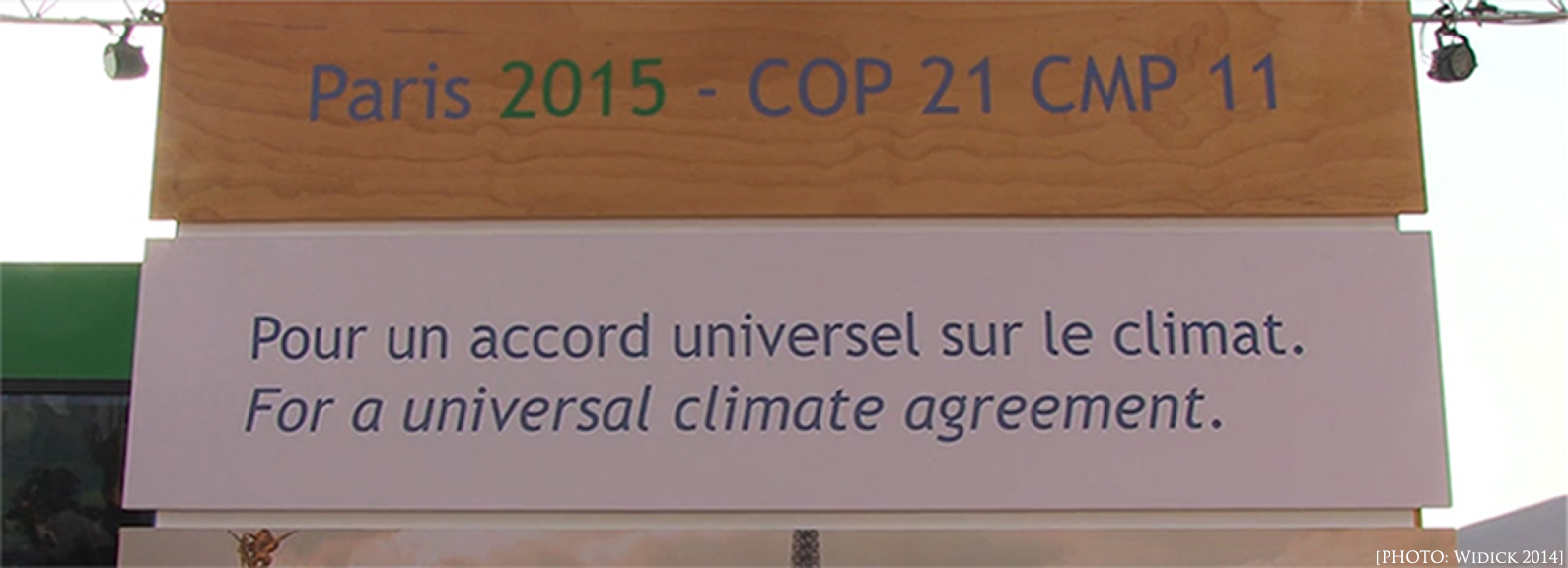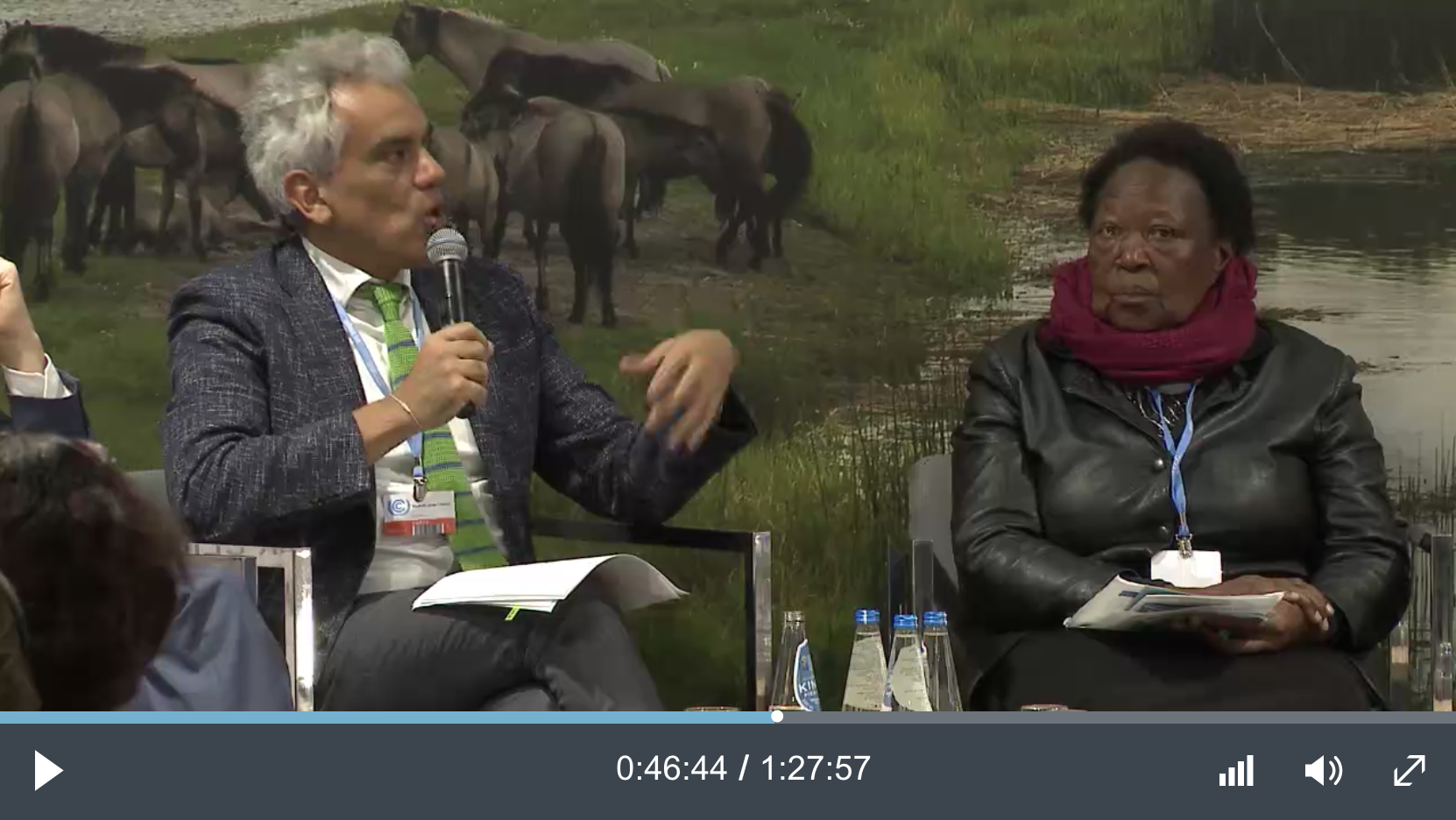Richard Widick is a Sociologist and Visiting Scholar at the Orfalea Center for Global & International Studies at UC Santa Barbara, where he participates in the Environmental Justice and Climate Justice Studies Research Hub (EJ/CJ).
T
he nations of Earth have collectively recognized that global warming and climate change require an international response.
In the interest of supporting and deepening that response, educators and students need to bring these international efforts into the classroom with as much urgency as possible.
To that end, on this Topic page I provide everything you need as educators or students to begin developing your own critical educational initiatives and join the effort.
As a sociologist conducting field research in this arena for over 20 years, I bring terabytes of data and scores of hours of audio and visual documentation to the table, as well a few insights into integrated methods for research, publication and teaching about the soci0-cultural struggle over emergent global climate governance.
The first and biggest problem for teaching global climate governance is complexity, so it is important to begin by narrowing the topic down.
For our purposes, the generic term global climate governance will be used to indicate the collective response of human societies to produce democratic self-governance of the unfolding climate crisis.
This collective response must be understood as an emergent compromise formation of opposing social forces that can be broadly described as emerging from three reciprocally determining but relatively independent spheres of everyday modern life:
- the economic sphere: working people, labor and ownership associations, and corporations in every sector of production — the sphere in which wealth and poverty are produced and maintained
- the public sphere: an almost infinite collection of individual and collective social forces represented by voluntary organizations of every sort, including activists, Non-Governmental Organizations (NGOs), public interest and citizens groups self-organized at every scale in every sector of everyday life — the sphere in which public opinion is forged
- the political sphere: the organized, multilateral international processes for negotiation and cooperation among transnational entities and actors — the sphere in which collective power is codified and expressed as governance
For my purposes here, the term emergent global political sphere of climate governance specifically refers to the institutional spaces created and managed by:
- The United Nations and its subsidiary bodies, including first and foremost the United Nations Framework Convention on Climate Change (UNFCCC) and its subsidiary bodies
- The World Bank
- The International Monetary Fund
Essential Background:
In May of 1992, the UN General Assembly adopted the text of the United Nations Framework Convention on Climate Change, and they opened the Convention for signing at the Rio Earth Summit in June of 1992.
On March 21, 1994, the UNFCCC entered into force, and the UNFCCC Conference of the Parties (COP) to the Convention have been meeting every year since COP 1 in Berlin, in April 1995.
With my climate research partner John Foran (Professor of Sociology at UCSB and NXTerra co-director), I started my research on this international experiment in global climate governance at COP 17, Durban South Africa 2011, at which I represented the University of California as an Official Observer Delegate for the first time.
In that year, the UNFCCC launched the so-called Ad Hoc Working Group on the Durban Platform for Enhanced Action (ADP), the process that delivered the 2015 Paris Agreement on Climate Change.
I have been at every COP from 2011 to 2019 in that same official but autonomous capacity.
In 2011, Foran and I created The International Institute of Climate Action & Theory (IICAT) — a public-facing climate-focused transformative knowledge network, research collaboration think tank and media hub.
The IICAT website was and remains our climate research archive — a public file cabinet with which we share our sources and publish our work.
IICAT is a methodological experiment in conflict-seeking participatory ethnography and visual documentation — a tool for participating in the UN climate talks and engaging with the scholars, intellectuals, activists, politicians and business folks who gather each year inside the COPs as well as outside, in the streets.
In 2015 Foran and I put out an open call for UCSB scholars interested in environmental and climate governance, and in environmental and climate justice social movements to join us in forming the Environmental and Climate Justice Studies Research Hub (EJ/CJ) at the Orfalea Center for Global & International Studies at UCSB.
EJ/CJ is constituted by 20 UCSB scholars and seven Constituent Projects, each of which is organized by one or more EJ/CJ scholars.
In 2016, John Foran (UC) and Sarah Jaquette Ray (CSU) created the UC-CSU Knowledge Action Network for Climate Justice Education, out of which grew the UC-CSU NXTerra Project.
In 2017, EJ/CJ adopted the UC-CSU KAN as one of its EJ/CJ Constituent Projects.
The KAN met and brainstormed the problem of teaching in climate change, and decided a powerful engagement with the concept and practice of climate justice was necessary.
In 2017, Foran and Sarah Ray (Professor of Environmental Studies and NXTerra co-director) and I proposed UC-CSU NXTerra as the next step toward shaping the study of climate change, critical sustainability, and climate justice, a tripartite conceptual attempt to capture what we see as crucial streams of related knowledge-creation (discourses) that can help us transform the way educators from both of California’s flagship public university systems think, act, and teach about the unfolding climate crisis.
A key component of the educational transformation we envision is bringing the global efforts to regulate/govern what I call carbon maldevelopment—to bring the extractive fossil fuel culture of corporations, private interests, public interests, and nations into the realm of democratic governance, and thus under the purview of climate science—what we know to be true, and thus what we know needs to be done.
- Updated — February 21, 2021



